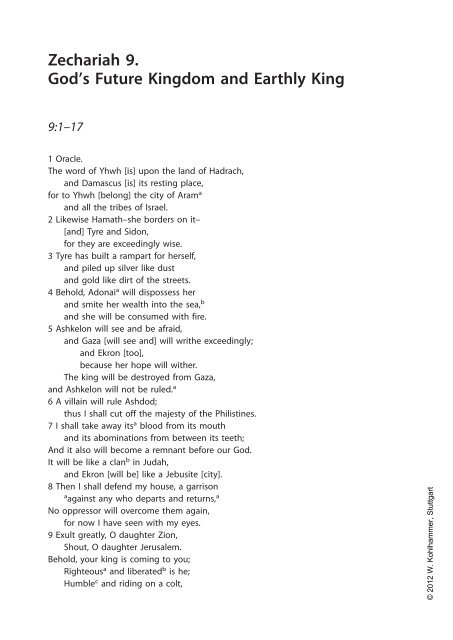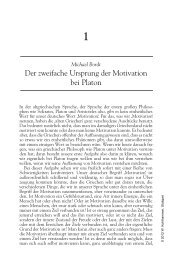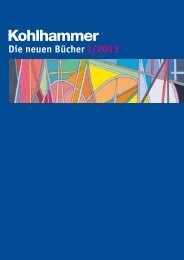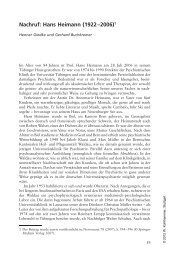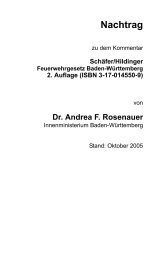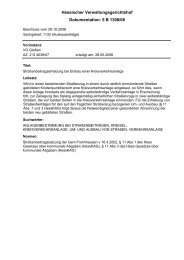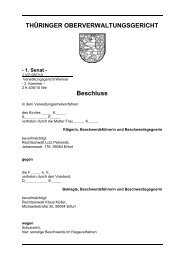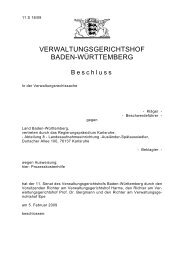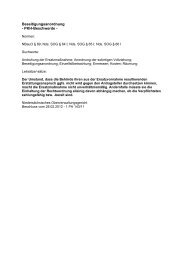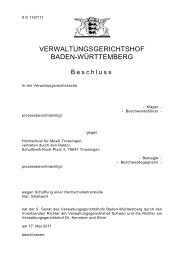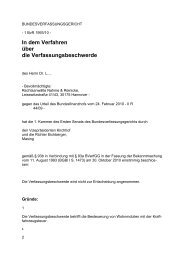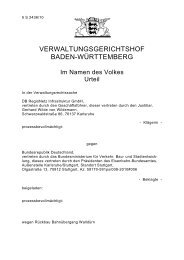You also want an ePaper? Increase the reach of your titles
YUMPU automatically turns print PDFs into web optimized ePapers that Google loves.
Zechariah 9.<br />
God’s Future Kingdom and Earthly King<br />
9:1–<strong>17</strong><br />
1 Oracle.<br />
The word of Yhwh [is] upon the land of Hadrach,<br />
and Damascus [is] its resting place,<br />
for to Yhwh [belong] the city of Aram a<br />
and all the tribes of Israel.<br />
2 Likewise Hamath–she borders on it–<br />
[and] Tyre and Sidon,<br />
for they are exceedingly wise.<br />
3 Tyre has built a rampart for herself,<br />
and piled up silver like dust<br />
and gold like dirt of the streets.<br />
4 Behold, Adonai a will dispossess her<br />
and smite her wealth into the sea, b<br />
and she will be consumed with fire.<br />
5 Ashkelon will see and be afraid,<br />
and Gaza [will see and] will writhe exceedingly;<br />
and Ekron [too],<br />
because her hope will wither.<br />
The king will be destroyed from Gaza,<br />
and Ashkelon will not be ruled. a<br />
6 A villain will rule Ashdod;<br />
thus I shall cut off the majesty of the Philistines.<br />
7 I shall take away its a blood from its mouth<br />
and its abominations from between its teeth;<br />
And it also will become a remnant before our God.<br />
It will be like a clan b in Judah,<br />
and Ekron [will be] like a Jebusite [city].<br />
8 Then I shall defend my house, a garrison<br />
a against any who departs and returns, a<br />
No oppressor will overcome them again,<br />
for now I have seen with my eyes.<br />
9 Exult greatly, O daughter Zion,<br />
Shout, O daughter Jerusalem.<br />
Behold, your king is coming to you;<br />
Righteous a and liberated b is he;<br />
Humble c and riding on a colt,<br />
© 2012 W. Kohlhammer, Stuttgart
34 9:1–<strong>17</strong><br />
indeed on a jack, the son of jennies. d<br />
10 Then I a will cut off the chariot from Ephraim<br />
and the horse from Jerusalem,<br />
and the bow of battle will be cut off.<br />
Then he will speak peace to all the nations,<br />
his dominion will be from sea to sea,<br />
and from the River to the ends of the earth.<br />
11 Also as for you on account of the blood of your covenant,<br />
I shall send your prisoners forth from the pit,<br />
in which is no water.<br />
12 Return to a stronghold, O prisoners of hope,<br />
a for today I am declaring, a<br />
“I shall return to you double.”<br />
13 For I shall bend a Judah to me,<br />
and fill Ephraim [like] a bow,<br />
I shall arouse your sons, O Zion,<br />
b against your sons, O Javan, b<br />
and I shall wield you like the sword of a warrior.”<br />
14 Then Yhwh will appear over them,<br />
and his arrow will go forth like lightning;<br />
and Adonai Yhwh will blow on the shophar,<br />
and march a in the whirlwinds of the south.<br />
15 Yhwh of hosts will protect them,<br />
so they will devour<br />
and tread down the sling stones;<br />
they will drink and roar a as with wine,<br />
and be full like a bowl, like corners of an altar.<br />
16 Yhwh their God will save them.<br />
On that day his people will be like a flock,<br />
for [like] jewels they will shine upon his land.<br />
<strong>17</strong> For how good is he and how beautiful!<br />
Grain will cause the young men to thrive,<br />
and new wine the young women.<br />
Notes on Text and Translation<br />
1a The Hebrew words םדא ןיע<br />
appear from the context to constitute a place name, but<br />
one that is unattested elsewhere. Several different suggestions for reading the two<br />
words have been made. NRSV translates the phrase “the capital of Aram,” a translation<br />
involving two emendations. The first is to read ר יע<br />
(city) for the MT’s ן יע<br />
(eye,<br />
spring). The second is to read ם רא<br />
(Aram) for ם דא<br />
(Edom). These emendations fit the<br />
context and are accepted here. Many other scholars want to read the word ריע<br />
(“city”) as י רע<br />
(“cities”), and translate “the cities of Aram.”<br />
© 2012 W. Kohlhammer, Stuttgart
Notes on Text and Translation 35<br />
4a Various mss read Yhwh instead of Adonai. To be sure the name Yhwh appears almost<br />
forty times in Zechariah 9–14, but Adonai appears in 9:14 also. There is no convincing<br />
reason to emend the text to read Yhwh.<br />
4b It is also possible to translate this phrase “upon the sea,” suggesting God would end<br />
Tyre’s maritime activities, which became particularly important during the Assyrian<br />
empire.<br />
5a The Hebrew word used here בשׁי can mean “sit,” “remain,” “dwell,” or even “inhabit.”<br />
Meyers and Meyers (Zechariah 9–14, 109–111) point out that in connection with the<br />
word “king” the verb can also mean “rule,” and suggest that it has that meaning<br />
here and in the beginning of v. 6. Their translation is accepted.<br />
7a The antecedent for this pronoun is probably the city Ashdod, though it could possibly<br />
be the Philistines despite the disagreement in number between the noun “Philistines”<br />
and the ms pronoun א וה.<br />
The third masculine singular of the pronoun may<br />
have been suggested by the reference to the ruler as the “illegitimate son.”<br />
7b The Hebrew word ףלא can be pointed either as ף לֻּ אַ (ᵓallūp) to designate an intimate<br />
friend, or as ף לֶ אֶ (ᵓelep) to mean a “thousand.” Meyers and Meyers (Zechariah 9–14,<br />
116) follow the MT, but translate ף לֻּ אַ (ᵓallūp) with a collective force they deem<br />
warranted by the context, viz. “clan.” Their translation has been adopted here.<br />
8a-a The phrase seems to refer to everyone who passes by the city, i.e. all who come and<br />
go. BHS says to delete, but there is no compelling reason to do so.<br />
9a BDB (843) gives “victorious” as the meaning of קידצ in Zech 9:9, and cites 2 Sam 23:3<br />
and Jer 23:5 as other places where the word carries the same meaning. That suggestion<br />
seems to mean that the king would be the one through whom God would<br />
conquer the surrounding world. Meyers and Meyers (Zechariah 9–14, 88, 125) prefer<br />
instead to translate קידצ as “righteous,” its overwhelming meaning in the Hebrew<br />
Bible. Their understanding of the word is adopted here.<br />
9b עשׁונ can also be translated “saved” Both “saved” and “liberated” suggest a different<br />
meaning than the translation “victorious,” where the king is thought to defeat all<br />
comers. Rather, the future king will be liberated by God. Meyers and Meyers (Zechariah<br />
9–14, 126–127) point to Deut 33:29 and Ps 33:16, both of which employ the Niphal<br />
of the root – as here. In Deut 33:29 Israel is a people “saved by Yhwh,” and in Ps<br />
33:16 a king is not saved by his army, but by God. The fighting in Zech 9:1–8 had<br />
been done by Yhwh, not a Judean king. Indeed, while other verses in Zechariah 9–<br />
14 speak of fighting, such fighting is never done by a Judean king.<br />
9c The word means “humble” in the sense of “afflicted” or “poor.”<br />
9d GK 124o notes that the plural תונתא sometimes denotes an indefinite singular, but<br />
here the verse may instead insist that the colt that the king would ride was a “pure<br />
bred jackass.” See Way, “Donkey Domain,” esp. p.114.<br />
10a Reading with the MT. The LXX reads “He,” a reading often preferred by modern<br />
translators because the second half of the verse clearly refers to “his,” i.e., the king’s<br />
dominion. The speaker, however, has been God since v. 6a (where the same first<br />
person verb is used), who continues to speak through v. 13.<br />
12a-a Literally the clause could read: “also the day is announcing,” but the entirety of vv.<br />
11–13 suggests that God is speaking in the sentence. Hence, scholars often infer<br />
from that phrase a first person speaker from the rest of the sentence, as is done here.<br />
13a The verb ך רד<br />
(translated “bend”) more generally means “tread” or “march.” BDB,<br />
202, offers “bend” as the meaning with “bow,” as here.<br />
13b-b Sometimes this clause is considered textually suspect on the basis of meter. See the<br />
discussion in the comments below.<br />
14a The basic meaning of the verb ךלה is “walk,” but it is as rich a verb in Hebrew as<br />
in English. The translation “march” is an attempt to catch the military flavor of<br />
the context.<br />
© 2012 W. Kohlhammer, Stuttgart
36 9:1–<strong>17</strong><br />
15a BHS suggests reading םד or םמד for ו מה.<br />
NRSV translates the whole clause “they shall<br />
drink their blood like wine,” a gruesome picture indeed. The translation offered here<br />
follows Meyers and Meyers (Zechariah 9–14, 154–155), who read ומה as a third-person<br />
plural of the verb ה מה<br />
(growl, roar, be boisterous), originally prefixed by a waw,<br />
which they suggest fell out due to haplography.<br />
Synchronic Analysis<br />
Following the introductory word א שׂמ<br />
(oracle), Zechariah 9 takes the form of a<br />
chiasmus with five parts.<br />
9:1–6a. Yhwh works to re-establish the kingdom.<br />
9:6b-8. Yhwh speaks of Yhwh’s redemptive work.<br />
9:9–10. Yhwh presents Jerusalem its king.<br />
9:11–13. Yhwh speaks of Yhwh’s redemptive work.<br />
9:14–<strong>17</strong>. Yhwh works to protect the restored kingdom. 1<br />
Yhwh is the principal actor and main speaker in Zechariah 9. The first and last<br />
divisions, vv. 1–6a and 14–<strong>17</strong>, describe God’s future actions on behalf of God’s<br />
people in the third person, while vv. 6b-13 have God describe the divine efforts in<br />
the first person singular, speaking of God’s house in v. 8 and addressing Jerusalem<br />
directly in vv. 9–10.<br />
Zechariah 9 portrays Yhwh acting in three bold strokes. First (vv. 1–6a, 6b-8),<br />
God captures the ideal territory of Israel from the land of Hadrach in the north,<br />
the city of Damascus in the east, adding them to the tribal lands of Israel, and<br />
then campaigns against Tyre, Sidon, and the Philistine cities along the Mediterranean<br />
coast. At the end God moves to defend God’s “house.” That “house,” presumably,<br />
was the temple in Jerusalem, but the word ל כיה<br />
(temple) was never used in<br />
Zechariah 9–14. By contrast, it was used seven times in Haggai/Zechariah 1–8 and<br />
twice in Malachi. Second (in 9:9–10), God presents a new king to Jerusalem, and<br />
third (in vv. 11–13, 14–<strong>17</strong>) God defends the whole land, both Judah and Ephraim,<br />
against enemy attacks. These three strokes do not coincide with changes in person<br />
of the verbs in the chapter. As shown above, whereas vv. 1–6a speak of God in the<br />
third person, in vv. 6b-13 God speaks in the first person, and vv. 14–<strong>17</strong> return the<br />
third person. The effect of the first person voice in the middle of the chapter is<br />
to place God’s words of assurance to and about Jerusalem directly upon the lips<br />
of God. Those verses are not just a threat about what God will do outside Jerusalem;<br />
they also make promises about what God will do for Jerusalem and its inhabitants.<br />
1 This diagram of the chapter follows that of Curtis given above, but subdivides his first<br />
and last oracles to reflect the change in number in the verbs within vv. 1–8 and 11–<strong>17</strong>.<br />
© 2012 W. Kohlhammer, Stuttgart
Synchronic Analysis 37<br />
The Title אשׂמ<br />
The title for Zechariah 9, indeed for the whole of Zechariah 9–11, is the word אשׂמ<br />
(oracle). What follows immediately in v. 1 (“The word of Yhwh is upon [ב] the land<br />
of Hadrach”) is an incipit, the first sentence of the author’s message. The word<br />
אשׂמ probably was placed at the head of Zech 9:1–10 or 9:1–<strong>17</strong> when those verses<br />
were attached to Zechariah 8. אשׂמ appears in 12:1 also, but there it is followed by<br />
a second superscription: “the word of YWHW concerning ( ל ע)<br />
Israel.” Since Zechariah<br />
12–14 never mentions the northern kingdom, the word “Israel” in 12:1 was<br />
chosen most likely with a glance back at 9:1, where it appears as the last word in<br />
the verse. Mal 1:1 likewise opens with a double superscription: “An oracle. The<br />
word of the Lord to ( ל א)<br />
Israel by Malachi.”<br />
This threefold use of אשׂמ followed by the phrase “the word of Yhwh” has<br />
caused a number of scholars to conclude that Zechariah 9–11, 12–14, and the book<br />
of Malachi are three separate collections added to Zechariah 1–8 by the same hand,<br />
but that statement oversimplifies the superscriptions. Specifically, as noted above,<br />
Zech 12:1 contains not only the word א שׂמ,<br />
but also a second superscription, the<br />
phrase “the word of the Lord concerning Israel,” and a third as well: “Thus says<br />
Yhwh.” That third superscription may have been the original heading for Zech<br />
12:1–9. The word “Israel” in 12:1 does not refer to the northern kingdom, but was<br />
used genetically for Judah, perhaps polemically, since Zechariah 12–14 expresses<br />
no hope for the northern kingdom. Moreover, Mal 1:1 originally may have begun<br />
“The word of the Lord to ( ל א)<br />
Israel by Malachi,” a name derived from Mal 3:1 and<br />
affixed to give the collection a name–quite possibly when it was connected to<br />
Haggai, Zechariah. Thus, the word אשׂמ in Zech 12:1 and Mal 1:1 appears to have<br />
been used in imitation of Zech 9:1, and the phrase “the word of the Lord (concerning)<br />
Israel” in Zech 12:1 was borrowed from Mal 1:1.<br />
The word אשׂמ derives from a root meaning “to lift up, bear, carry,” and it<br />
designates a burden. Secondarily, it is used to refer to prophetic utterances. The<br />
phrase “the word of Yhwh” appears as the superscription in Hos 1:1, Joel 1:1, Mic<br />
1:1, and Zeph 1:1, though in those cases the name of the prophet follows: e.g.: “the<br />
word of the Lord that came to Hosea.” Various passages in Jeremiah likewise name<br />
him as the one to whom the word of God had come (e.g., Jer 7:1; 11:1; 14:1), and<br />
other texts, written in the first person singular say the word came to “me” (e.g.,<br />
Jer 1:4; 2:1). 2 Unlike these other passages, however, the phrase “the word of Yhwh”<br />
in Zech 9:1 is not followed by a preposition saying to whom the word came. Instead,<br />
the phrase “the word of God” actually begins the first sentence of the prophetic<br />
message. 3<br />
2 For a discussion of other ways of introducing prophetic books, see Conrad, “Forming<br />
the Twelve,” 96–101.<br />
3 See Beth Glazier-McDonald, Malachi: The Divine Messenger (Society of Biblical Literature<br />
Dissertation Series 98; Atlanta: Scholars Press, 1987), 26. She argues that the word אשׂמ<br />
alone constitutes the superscription in 9:1, that the entire first half of 12:1 serves that<br />
role in Zechariah 12, and that Mal 1:1 was similar to other prophetic passages where<br />
the addressee was named.<br />
© 2012 W. Kohlhammer, Stuttgart
Defeat of<br />
Hadrach.<br />
38 9:1–<strong>17</strong><br />
Richard D. Weis has argued that אשׂמ designates a “prophetic exposition of a divine<br />
revelation.” 4 He says that a אשׂמ responds to a question concerning a lack of clarity<br />
about divine intention or else some aspect of the human events through which<br />
the intention will be fulfilled. In pre-exilic texts the message needing further explication<br />
lies within the passage headed by the word א שׂמ,<br />
but in the case of Zech<br />
9:1, the texts needing further explication are Haggai 1–2 and Zechariah 1–8. In the<br />
case of Zech 12:1 and Mal 1:1, the text to be explicated is Zech 11:4–<strong>17</strong>.<br />
One question underlying Zechariah 9 would seem to be this: when will the<br />
new king begin his reign in Jerusalem? (Zerubbabel had been promised in Hag<br />
2:20–23, Zech 4:6b-10a, and perhaps an earlier version of Zech 6:9–15, but he is<br />
not named here.) A second question for the whole chapter might have been this:<br />
when will the reunion of Judah and Israel occur? (To be sure Israel is mentioned<br />
only twice in Haggai/Zechariah 1–8, namely in Zech 1:19 and 8:13. In both verses<br />
the references to Israel look like additions, and perhaps were read back into Zechariah<br />
1–8 from Zechariah 9 and 10. 5 ) Zechariah 9 answers both questions, and Zechariah<br />
10 answers the second.<br />
9:1–6a. Yhwh works to re-establish the New Kingdom<br />
Verses 1–6a have a specific objective in view: to sketch the borders of the coming<br />
new kingdom of God. They open by affirming Yhwh’s attention to the land of<br />
Hadrach. The word of God is said to be “in,” “among,” “with,” or “against” Hadrach,<br />
depending on how one translates the Hebrew preposition ב. One question, therefore,<br />
is whether God’s action toward Hadrach is positive or negative. No conclusive<br />
answer is possible, though translators have typically opted for the meaning<br />
“against.” Meyers and Meyers, by contrast, have argued that “in” is a better translation,<br />
fitting well the peaceful aura of the reference to Damascus. 6 It is not clear,<br />
however, that the verse envisions peace on Damascus despite the reference to<br />
God’s word being at “rest.” His “word” might have arrived on Damascus with force<br />
and then rested there. Nor would the term preclude previous conflict before the<br />
time of rest. In any case, a negative meaning fits the militaristic overtones of vv.<br />
2–8.<br />
The second issue is the identity and location of Hadrach. This issue is complicated<br />
by the fact that it is mentioned nowhere else in the Hebrew Bible. It is often,<br />
but not conclusively, identified with the “city of Hatarikka” mentioned by the<br />
Assyrian king Tiglath-pileser (r. 745–727) in his annals, naming it as the capital of<br />
a king named Zakir. 7 In another stele Zakir himself claims that Be‘elshamayn had<br />
made him king over Hatarikka as well. 8 Apparently, therefore, “Hadrach” was a<br />
4 Weis, “Oracle,” 28–29.<br />
5 Still, the name “Ephraim” occurs in 9:14 and 10:7, and the name “Joseph” (progenitor<br />
of Ephraim and Manasseh) appears in 10:6aβ. Both chapters seem to envision some<br />
kind of reunion of north and south.<br />
6 Meyers and Meyers, Zechariah 9–14, 90, 93.<br />
7 Michael H. Floyd “Hadrach,” NIDB, 2. 2<strong>17</strong>. The Assyrian text is from Tiglath-Pileser:<br />
“Campaigns in Syria and Palestine,” ANET,” 283.<br />
8 “Zakir of Hamat and Lu‘ath,” ANET, 655.<br />
© 2012 W. Kohlhammer, Stuttgart
Synchronic Analysis 39<br />
city, a city state, or a district located in the general vicinity of Hamath. 9 More<br />
specifically, it seems to have lain south of the Euphrates, but north of the land of<br />
Israel, which traditionally extended “from Dan to Beersheba.”<br />
Next, v. 1 names Damascus. It was, of course, the capital of the Arameans. The<br />
verse calls it the resting place of the word of Yhwh. The word ו תחנמ<br />
(translated<br />
“resting place”) means “rest” or “quietness,” as well as a place to rest. The verse<br />
portrays Damascus as a place where God’s hand already rested, perhaps after coming<br />
down on the city and its environs. The overall tenor of the opening sentence<br />
is that God is in charge of matters on the northern edge of Israel’s territory. That<br />
meaning is reinforced by the next sentence, which says that the city of Aram (i.e.<br />
Damascus) as well as all the tribes of Israel belong to Yhwh. Thus, v. 1 seems to<br />
be a description of a future politico-spiritual reality that was not yet obvious to<br />
all, but which the prophet could see. He could argue that the cities of northern<br />
Israel belonged to God (regardless of whether all their inhabitants or their neighbors<br />
thought so), and his view that Damascus did also stakes a claim to additional<br />
territory for Israel outside of the traditional boundaries.<br />
The ensuing verses continue to broaden the borders of that land. The verbal<br />
map specifically includes Hamath, a city or city-state on the Orontes River in<br />
northern Phoenicia, located almost due north of Damascus, roughly 200 kilometers<br />
(about 125 miles). Verses 1–2a in effect claim that the future land of Israel will<br />
include Damascus and Hamath, in addition to “all the tribes of Israel.” These tribes<br />
presumably included not only the northern kingdom of Israel, but also Judah in<br />
the south.<br />
After Hamath the passage next mentions Tyre and Sidon. These two cities lay<br />
on the Mediterranean coast, Sidon about 40 kilometers (about 25 miles) north of<br />
Tyre. They co-existed as independent kingdoms until about the eighth century,<br />
when Sidon came under the control of Tyre. At that time the Assyrians turned<br />
the area into an Assyrian province, and Tyre and Sidon gradually separated again.<br />
Though Sidon became an Assyrian province, Tyre fluctuated back and forth between<br />
independence and submission. The Babylonian king Nebuchadnezzar<br />
changed that situation with his successful siege of the city. Later under the Persians<br />
both cities flourished, though Sidon became the more important.<br />
In Zech 9:2b-4 the pair functions to establish the northwestern border of God’s<br />
new kingdom. Thus, the whole northern border would stretch from the edge of<br />
the Arabian Desert on the east at Damascus to Hamath in the north to the Mediterranean<br />
at Tyre and Sidon. Nowhere else in the Hebrew Bible were Tyre and Sidon<br />
seen as belonging to Israel. Here their wisdom is mentioned, but it will not help<br />
them hold off God’s advance.<br />
Tyre comes in for special condemnation. The text speaks of its accomplishments<br />
and wealth and specifically of its rampart. The defenses of Tyre indeed were<br />
remarkable, situated as the city was on a rocky island just off the Phoenician coast.<br />
Neither the Assyrians (who attacked in 671 and 663) nor the Babylonians destroyed<br />
it, though the Assyrians exacted tribute and the Babylonians (under Nebuchadnez-<br />
9 On the location of Hadrach as an area, see the map by Anson F. Rainey and R. Steven<br />
Notley, Carta’s New Century Handbook and Atlas of the Bible (Jerusalem: Carta, 2007), 125.<br />
Ray L. Roth (“Hadrach,” ABD, 3.<strong>17</strong>) calls it a city state, a suggestion that might resolve<br />
the ambiguity of whether Hadrach was a city or a district.<br />
Defeat of<br />
Damascus.<br />
Defeat of Tyre<br />
and Sidon.<br />
© 2012 W. Kohlhammer, Stuttgart
Defeat of the<br />
Philistines.<br />
40 9:1–<strong>17</strong><br />
zar) removed its monarch. The text seems to suggest that Tyre’s defenses had been<br />
sufficient to prevent its destruction up to the author’s time. 10 Also, v. 3 says, Tyre<br />
had “piled up silver … and gold,” a reference to its wealth. It is not accused of<br />
harming Judah in either process, though such harm might be implied. Regardless,<br />
Tyre was due for a change of fortunes. Adonai (a name for God meaning “my<br />
Lord” that appears frequently in the MT) would “dispossess” her, and “smite her<br />
wealth into the sea.” Her defense would be insufficient before God’s onslaught.<br />
The city itself would be “consumed with fire.”<br />
Thus far the text has delineated the eastern border (Damascus and the Arabian<br />
Desert), the northern border (Hadrach and Hamath), and the western border (the<br />
Mediterranean Sea) of Israel’s future land. What is left is the southern border. The<br />
new kingdom will reach, says v. 5, as far south as the old Philistine cities of Ashkelon<br />
and Gaza (the latter of which was the southernmost, where the coastal plain<br />
was at its widest). The southern border of Judah/Israel elsewhere is said to be the<br />
“wadi [ ה לחנ]of<br />
Egypt” in Num 34:5; see also the word לחנ in Josh 15:4, 47; 1 Kgs<br />
8:65; and Isa 27:12. The southern border also is indicated by the phrase “the river<br />
[ ר הנ]<br />
of Egypt,” mentioned in Gen 15:18, in which verse God tells Abram the borders<br />
of his land will stretch “from the river of Egypt to the great river,” i.e. the Euphrates.<br />
While the exact meaning of the phrase “river of Egypt” is unclear, the<br />
point of Zech 9:5–6a was that the renewed Israel would stretch all the way to the<br />
border of Egypt.<br />
In Egyptian records the Philistines were first mentioned by name during the<br />
reign of Pharaoh Ramses III (r. ca. 1198–1166), who clashed with them in their<br />
cities of Ashdod, Ashkelon, and Gaza. 11 The Philistines drove out the Egyptians and<br />
added the towns of Ekron and Gath, to form a Philistine pentapolis. 12 They dominated<br />
the region until about 1000, expanding their territory up the Mediterranean<br />
coast, through the Jezreel Valley to Beth-shan near the Jordan River, and they<br />
established hegemony over the Israelite tribes in the hill country. 13 1 Samuel 9–31<br />
records the career of Saul and his death at the hands of the Philistines, and 2 Sam<br />
5:<strong>17</strong>–25; 8:1 credits David with their defeat. They are mentioned from time to time<br />
in 1 and 2 Kings, both as a neighboring people (in 1 Kgs 15:27; 2 Kgs 8:2) and as<br />
those who paid tribute to Israelite kings (in 1 Kgs 4:21) or warred against Judah<br />
(2 Kgs 18:8). 2 Chronicles adds to the picture with details not paralleled in 2 Kings.<br />
First, it reports (in 2 Chr <strong>17</strong>:11) that the Philistines paid tribute to King Jehoshaphat<br />
of Judah (r. 873–849). Also (according to 2 Chr 26:6) they attacked Jehoram<br />
king of Israel (r. 849–843). Third (2 Chr 28:18), the Philistines raided the Shephelah<br />
14 and southern Judah during the reign of Ahaz, king of Judah (second half of<br />
the eighth century). Assyrian literature corroborates this picture.<br />
10 Ezek 26:1–28:24 predicts that Tyre would fall to Babylon, but Ezek 29:18–20 concedes<br />
that the Babylonian siege failed, with the new prediction that Nebuchadnezzar would<br />
take enough booty from Egypt to make up for what he failed to take from Tyre.<br />
11 Ramses III: “The War Against the Peoples of the Sea,” ANET, 262. The Philistines are<br />
also mentioned in “The Journey of Wen-Amon to Phoenicia,” ANET, 26.<br />
12 W. S. LaSor, “Philistines,” ISBE, 3.842.<br />
13 H. J. Katzenstein, “Philistines: History,” ABD, 5.327.<br />
14 The Shephelah was the “low country” between the coast of southern Judah and the<br />
hill country.<br />
© 2012 W. Kohlhammer, Stuttgart
Synchronic Analysis 41<br />
The Philistines proved less successful against Mesopotamian powers than they had<br />
against Egypt and local powers. The five city states paid tribute to Assyria for a<br />
while, specifically to Tiglath-pileser III, who captured Ashkelon. 15 Then Sargon II<br />
(r. 722–705) led his army to victory over a Syro-Palestinian rebellion and over<br />
Egypt. In the process he defeated Gaza and Ekron, and attached Ashdod to his<br />
sphere of influence. 16 He claimed to have defeated Gath (not mentioned in Zech<br />
9:5–7) as well. <strong>17</strong> His successor Sennacherib had to reassert control over those cities.<br />
Subsequently, both Babylon and Persia maintained control over Philistine territory.<br />
Verse 5 moves from Ashkelon to Gaza to Ekron, where it reverses the names<br />
of the first two cities, naming Gaza, then Ashkelon. One should note the structure<br />
of v. 5. Basically, it consists of a chiasmus built around Ekron.<br />
Ashkelon will see and be afraid,<br />
and Gaza will writhe exceedingly;<br />
and Ekron [too], because her hope will wither.<br />
The king will be destroyed from Gaza,<br />
and Ashkelon will not be ruled.<br />
The verse begins by predicting that Ashkelon, the finest port on the southern<br />
Mediterranean coast, would see God’s destruction of Tyre, and would experience<br />
fear (of undergoing a similar fate?). It ends by predicting that Ashkelon would be<br />
“uninhabited,” as most translations read. Meyers and Meyers, however, argue that<br />
the Hebrew root בשׁי often means “ruler” when pointed as a participle, and that<br />
the verbal form used here carries the meaning “ruled” (following as it does fairly<br />
closely the word “king”). 18 So the verse means that Ashkelon would lose its king<br />
as a result of God’s actions. In lines 2 and 4, the verse predicts the same loss for<br />
Gaza, which would suffer as a consequence. The defeat of these kings would be a<br />
necessary precursor to God’s rulership over the area. The middle line of the verse<br />
simply says that Ekron would lose hope, perhaps after losing its king too.<br />
The fourth and last Philistine city mentioned19 was Ashdod (v. 6a), also a<br />
coastal city, lying about as far north of Ashkelon as Gaza lay south. The city seems<br />
to have been a provincial capital under the Persians. Verse 6 envisions a “villain”<br />
or “contemptible person” ruling the city. It may have been clear to the original<br />
readers whom the author had in mind–if indeed he intended a certain individual.<br />
Regardless, the phrase is loaded with sarcasm. Which cities would be worse off:<br />
Ashkelon, Gaza, and Ekron, which had no king, or Ashdod, which had a base man<br />
for a king? It did not matter. He would suffer the same fate as the other kings:<br />
God would remove him too. God would cut off all the Philistine “kings,” i.e., “the<br />
majesty of the Philistines.” Alternatively, one can translate this phrase “the pride<br />
15 Tiglath-Pileser: “Campaigns in Syria and Palestine,” ANET, 282–283.<br />
16 Sargon II: “The Fall of Samaria, Analistic Reports,” ANET, 284–285.<br />
<strong>17</strong> Ibid., 286.<br />
18 Meyers and Meyers, Zechariah 9–14, 109–111.<br />
19 Gath, the fifth Philistine city, is not mentioned. Archaeological digs have found massive<br />
destruction at a level dateable to the late ninth century BCE, explaining why the city<br />
is rarely mentioned in later texts. See Carl S. Ehrlich, “Gath,” NIDB, 2.524–525.<br />
© 2012 W. Kohlhammer, Stuttgart
Defeat of<br />
Philistia<br />
continued.<br />
God’s house a<br />
garrison.<br />
42 9:1–<strong>17</strong><br />
of the Philistines,” i.e., as a reference to their pride in their own efforts and accomplishments.<br />
9:6b-8. Yhwh speaks of Yhwh’s redemptive work<br />
The second section of Zechariah 9 appears in vv. 6b-8. At this point the verbs in<br />
the chapter change voice to the first person singular, and continue in that voice<br />
through v. 13. God says: “I shall cut off [ ת רכ]<br />
the majesty of the Philistines.” Verse<br />
10 also employs that same verb in connection with God’s cutting off the war horse<br />
from Jerusalem, creating a nice connection between those two sections of the<br />
chapter. The result for the Philistines will be more or less positive. Here God<br />
promises to put an end to the “pride of Philistia” mentioned in v. 6a, but does not<br />
threaten the destruction of Philistia. The verse seems to anticipate its continuation<br />
within the boundaries of the future Israel/Judah.<br />
Verse 7 continues to develop the motif of loss by Philistia, adding that its<br />
people would be reduced in importance as the Jebusites had been. The Jebusites<br />
were listed among the traditional inhabitants of Canaan (see Gen 10:16; 15:21; Exod<br />
3:8; 3:<strong>17</strong>; 13:5; 23:23; 33:2; 34:11), and they inhabited Jerusalem and its environs<br />
(see Josh 18:28; Judg 19:10). David brought the city under Israelite control after he<br />
became king (2 Sam 5:6–10). Verse 7, therefore, concludes with a prediction of<br />
Ekron coming under the control of God as Jerusalem had come under the control<br />
of Israel’s great king David.<br />
God promises to take away the blood/food from the mouths of the people of<br />
Ashdod. This promise is sometimes said to have in mind all the Philistines rather<br />
than Ashdod alone, and it certainly might. The pronoun associated with the noun<br />
“blood,” however, is masculine singular and might fit the single city better than<br />
the plural noun “Philistines.” Thus, Ashdod alone seems to be the referent for the<br />
pronoun “his.” The passage continues by saying that Ashdod would be like a “clan”<br />
( ף לא)<br />
in Judah. The basic meaning of the word is “thousand,” so it is used of groups,<br />
in 1 Sam 10:19 of a subdivision within a tribe. 20 In Zech 9:7 likewise the word<br />
seems to refer to a subgroup within Judah. The motif of the reduction of Ashdod’s<br />
power and the city’s concomitant inclusion within the Judah of the future suggests<br />
its subordination to Judah.<br />
Finally, in v. 8 God promises to defend God’s house, making it a garrison<br />
against enemies. In late sixth-century Yehud, there was not much to the city of<br />
Jerusalem, but the verse insists that God would defend it against any further intrusions<br />
like the Babylonian attack. The passage employs two descriptions for enemies.<br />
The first is the phrase “all who depart and return.” It seems to have in view<br />
enemy armies marching back and forth through Judah and Jerusalem, especially<br />
the Babylonian army in the years leading up to the fall of Jerusalem and the<br />
20 In 1 Sam 10:19 Samuel commands the people of Israel to present themselves by tribes<br />
and by clans. The word appears again in Zech 12:5–6, where the NRSV translates it as<br />
“clans.” ה חפשׁמ,<br />
the more typical word for “clan,” is not used here.<br />
© 2012 W. Kohlhammer, Stuttgart
Synchronic Analysis 43<br />
destruction of the temple (see 2 Kgs 24:1–21.) 21 The verse promises that no armies<br />
will do so again. The second description employs the participle שׂ גֵ נֹ (oppressor).<br />
The term is much more general in meaning than “conqueror,” and perhaps has in<br />
view a wider referent than Babylon, maybe even including Persia. The elimination<br />
of invading armies and oppressors would usher in a time devoid of war.<br />
God’s concluding clause “now I have seen with my own eyes” perhaps strikes<br />
modern readers as curious, since they typically work with a concept of God as all<br />
seeing. The Old Testament, by contrast, does not hold such a Greek-like concept<br />
of the perfections of God, but works with the idea of a God who acts and even<br />
changes in light of the actions and reactions of human beings. What God had<br />
apparently “seen” was that the time to act on behalf of Israel/Judah had come.<br />
The time of exile had run its course; Haggai and Zechariah 1–8 had announced as<br />
much. Now God would again “defend” the house as God had defended it in the<br />
past before Judah’s sin had driven God away. (See Ezek 11:22–23 for depiction of<br />
God’s leaving the temple and the city for the Mount of Olives, rendering it defenseless<br />
against the Babylonian army, and Ezek 43:1–5, which predicted God’s return.)<br />
To conclude the first two sections of Zechariah 9, one may examine the territory<br />
these verses stake out for the future Judah/Israel. Havrelock argues that the<br />
Old Testament works with two conceptions of the ideal land of Israel, one that<br />
specifically includes Transjordan (see the account of Israel’s capturing Transjordan<br />
in Deut 3:8–<strong>17</strong>) and one that ranged from the River (i.e., the Euphrates) to the<br />
River of Egypt (either the Nile or the “Brook of Egypt” just south of Gaza; see also<br />
Gen 15:18, Deut 11:24, and the extent of Solomon’s kingdom in 1 Kgs 5:1). She<br />
argues that the map including Transjordan grew out of a desire to define Israel<br />
vis-à-vis Egypt, while the other map grew out of a desire to define Israel vis-à-vis<br />
Mesopotamian powers. 22 This passage clearly employs the “Euphrates” map. 23 The<br />
land will reach from Hadrach near the Euphrates to Gaza near the Brook of Egypt.<br />
Verse 10 will eliminate any doubt about that map by predicting that the new king<br />
will reign “from sea to sea, and from the River to the ends of the earth.” There is<br />
nothing strange about the choice of maps. Assyria and Babylon were traditional<br />
conquerors, and Persia constituted the dominant power against whom God would<br />
continue to defend God’s people. These verses promised God’s people control of<br />
the whole area.<br />
9:9–10. Yhwh presents Jerusalem its new king<br />
The next two verses, Zech 9:9–10, are possibly the most famous in the book of<br />
Zechariah, both for their importance in their own right, and also—for Christian<br />
thought—because of the role they play in the NT accounts of Palm Sunday. The<br />
previous eight verses make it clear that the establishment of the new Kingdom of<br />
21 The defeat of Jerusalem was not Babylon’s last incursion into the lands under discussion<br />
in Zechariah 9. It also besieged Tyre and invaded Egypt in 568/567; see Jer 46. See<br />
D. J. Wiseman, “Babylonia,” ISBE. 1.395.<br />
22 Havrelock, “Two Maps,” 656–658.<br />
23 Zech 9:1–8, however, does specifically include “all the tribes of Israel” (v. 1), but the<br />
map in use is the “Euphrates” map.<br />
© 2012 W. Kohlhammer, Stuttgart


